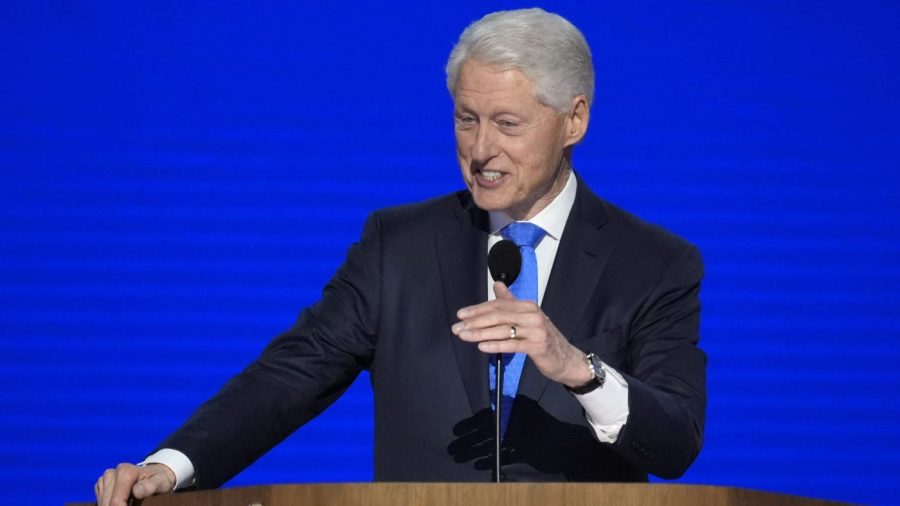
Gaetz Ethics report finds ‘substantial evidence’ of statutory rape, drug use
The House Ethics Committee found “substantial evidence” that former Rep. Matt Gaetz (R-Fla.) paid a 17-year-old high school student for sex when he was 35, used illicit drugs like cocaine and ecstasy, and obstructed Congress’s investigation into his conduct.
Those conclusions come in a highly anticipated report released Monday that capped the panel’s years-long, on-and-off investigation into the former Florida congressman.
“The committee concluded there was substantial evidence that Representative Gaetz violated House Rules, state and federal laws, and other standards of conduct prohibiting prostitution, statutory rape, illicit drug use, acceptance of impermissible gifts, the provision of special favors and privileges, and obstruction of Congress,” the report says.
Gatez has repeatedly denied having sexual contact with a minor and other wrongdoing. Last week, in anticipation of the report’s release, Gaetz said he had engaged in “embarrassing, though not criminal” past behavior.
Interest in the investigation reached its peak after President-elect Trump picked Gaetz to be attorney general, leading him to abruptly resign from Congress just before the panel was due to release the report. Amid opposition from GOP senators, Gaetz withdrew his name from consideration for AG the following week.
His exit from the House set off a debate about whether it was appropriate for the panel to take the rare, but not unprecedented, step of releasing its findings on a former member.
The Department of Justice had also looked into whether Gaetz violated sex trafficking laws related to the 17-year-old and traveling with her across state lines, but in 2023 declined to charge Gaetz with a crime. That probe stemmed from another investigation of former Florida tax collector Joel Greenberg, who is currently in prison for on charges including sex trafficking of a minor and fraud, and had cooperated with the DOJ as part of a plea agreement.
When the DOJ probe ended, however, the Ethics Committee booted up its investigation into Gaetz. The House committee is empowered to investigate whether representatives or staff have violated the rules and standards of the House, and has much different standards than federal law enforcement agencies.
Gaetz has noted the different standards of the internal Ethics committee versus a court when defending himself, saying in a post last week: “I NEVER had sexual contact with someone under 18. Any claim that I have would be destroyed in court – which is why no such claim was ever made in court.”
The Hill has reached out to Gaetz for comment on the report released Monday.
Report’s release marks end to drama on Capitol Hill
Monday’s release of the report marks the end of a weeks-long drama surrounding whether the panel, which typically conducts its work in secrecy would release its findings.
The panel had been investigating Gaetz since 2021. But interest in the probe reached a fever pitch in November after Gaetz was nominated by President-elect Trump to be attorney general and resigned from the House that day — a one-two step that came days before the committee was scheduled to meet and vote on whether to release its report into the Florida Republican.
Gaetz ultimately withdrew his name from consideration for attorney general days later amid opposition from GOP senators, then said he would not take the oath of office for the 119th Congress.
Some in both parties argued the committee should still release the report, especially in light of his Cabinet nomination — and Democrats pushed for it even after he withdrew from consideration — while other Republicans contended that the nearly-finished report should never be released since Gaetz was no longer a member of Congress.
The Ethics Committee does not have jurisdiction over former members of Congress. While rare, however, the panel has a few times released findings on former members — most recently in 2006, when the panel released the results of its investigation into former Rep. Mark Foley (R-Fla.), focusing on the conduct of House Republican leaders.
The debate over releasing the report divided the Ethics Committee. While Democrats were firm in their belief that the body of work should go public, Guest, the panel’s chairman, publicly said the findings should not see the light of day. In November, after Gaetz withdrew his name from consideration from attorney general, Guest said “I think that this should end the discussion of whether or not the Ethics Committee should continue to move forward in this matter.”
He stood firm in that position in the final report, writing an unusual dissenting statement that criticized the panel’s decision to release the report on Gaetz. He said he was writing on behalf of panel members “who do not support the release of the report,” but did not disclose who is included in that group.
“While we do not challenge the Committee’s findings, we take great exception that the majority deviated from the Committee’s well-established standards and voted to release a report on an individual no longer under the Committee’s jurisdiction, an action the Committee has not taken since 2006,” the statement said.
Guest’s statement noted that Gaetz has said he will not return for the 119th Congress, which starts on Jan. 3, arguing that the break from “long-standing practice,” opens the panel to “undue criticism” and “will be viewed by some as an attempt to weaponize the Committee’s process.”
The panel took a vote to release the report in November, which failed. Then a pair of House Democrats forced votes in the House on resolutions that would have compelled the Ethics Committee to publish its body of work on Gaetz, but the chamber voted to refer the measures back to committee — torpedoing the effort to reveal the findings.
DEVELOPING.



